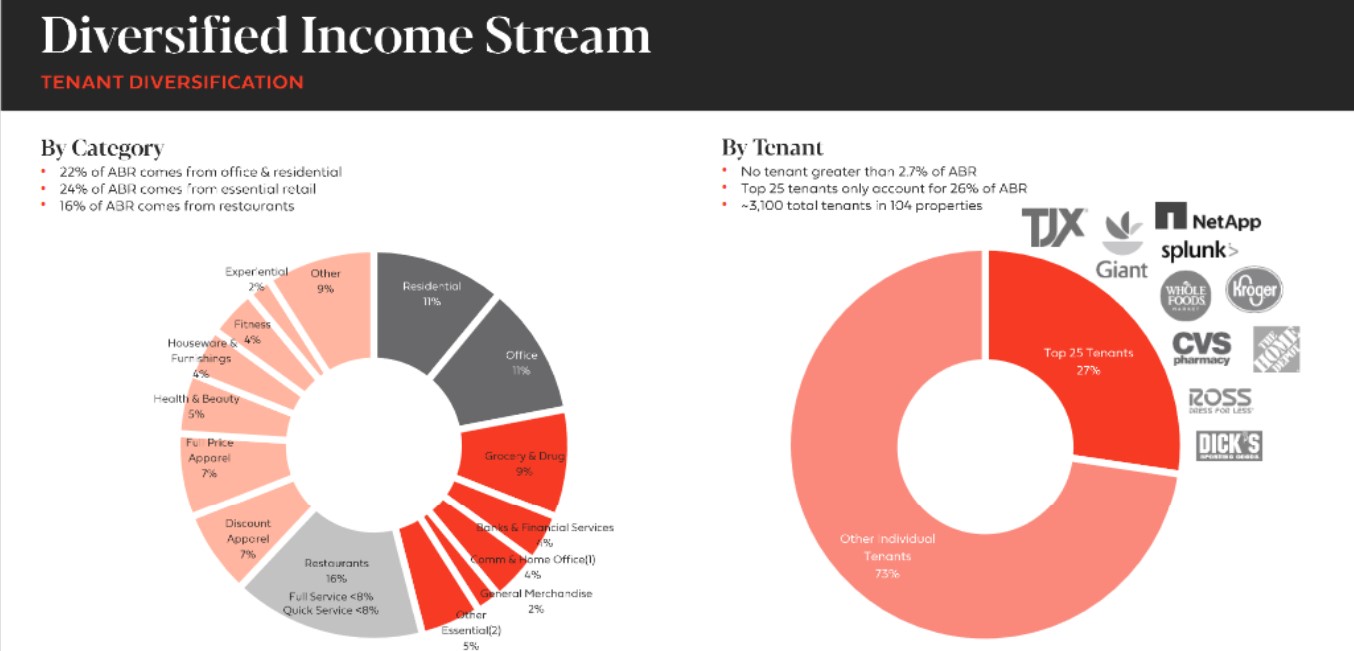
While there are many benefits to investing in real property, there are also some risks. Each investor must assess the risks and potential rewards in their own unique way. The factors that influence their decision-making are age, experience and objectives. There are many resources to assist them in selecting the best investment. Forbes Business Council is one such resource.
Clint Coons
Clint Coons is both a lawyer, and an avid investor in real estate. Anderson Business Advisors' founding partner, Clint Coons has acquired more 250 properties. His experience and knowledge are shared in hundreds, including articles, YouTube videos, books, and workbooks.
Clint Coons works as both a business advisor, and a real estate investor. He assists investors in building a strong foundation and protecting their investments. Clint was a founding partner in Anderson Business Advisors. This partnership has allowed the company to grow from a handful of employees to nearly 500 people. His insight has helped thousands nationwide.

Clint Coons has decades experience in real-estate investing. In his book, Next Level Real Estate Asset Protection, he outlines the steps to build a thriving real estate portfolio. Coons shows readers how they can protect their investments from foreclosure and creditors.
Brad Thomas
Brad Thomas is an investor in real estate who earns a living from real estate investing. He holds a bachelor’s degree in business and is married with five children. He speaks extensively about the investment field and is a prolific writer on the internet. He is a regular contributor to Forbes and other financial magazines, and his books include The Intelligent REIT Investor Guide.
Thomas has been in the business for more than 25-years and is recognized as an industry specialist. His articles appear in Forbes, Barron's Institutional Investors Seeking Alpha and The Street. He also contributes weekly columns to Forbes and Seeking Alpha.
Thomas is a veteran of the capital markets and has worked for many years in the development sector. He is still an advisor and investor in his business.

Federal Realty Investment Trust
Federal Realty Investment Trust, (FRT), is a real investment trust that has a steady increase in its dividend. This REIT has a diversified portfolio of 2,933 tenants, and has been increasing its dividend for 50 years. FRT is the symbol used for its shares.
Federal Realty has made significant investments in energy efficiency. It has already upgraded over half of its properties. It has also started installing LED lighting in common areas, and includes green provisions in its leases with tenants. These lease terms can be a great way of attracting like-minded tenants, as many retail tenants are responsible to their energy usage.
A variety of industrial properties are available for you to choose from if you are interested in investing in them. You can find industrial properties that are stable investments and are highly in demand. Distribution facilities are also increasing in popularity.
FAQ
What is a "bond"?
A bond agreement between two people where money is transferred to purchase goods or services. It is also known by the term contract.
A bond is usually written on a piece of paper and signed by both sides. This document details the date, amount owed, interest rates, and other pertinent information.
The bond can be used when there are risks, such if a company fails or someone violates a promise.
Sometimes bonds can be used with other types loans like mortgages. The borrower will have to repay the loan and pay any interest.
Bonds can also help raise money for major projects, such as the construction of roads and bridges or hospitals.
A bond becomes due when it matures. The bond owner is entitled to the principal plus any interest.
If a bond isn't paid back, the lender will lose its money.
What is security on the stock market?
Security can be described as an asset that generates income. Shares in companies are the most popular type of security.
A company may issue different types of securities such as bonds, preferred stocks, and common stocks.
The earnings per share (EPS), and the dividends paid by the company determine the value of a share.
Shares are a way to own a portion of the business and claim future profits. If the company pays a dividend, you receive money from the company.
You can sell shares at any moment.
What are some advantages of owning stocks?
Stocks are more volatile that bonds. Stocks will lose a lot of value if a company goes bankrupt.
If a company grows, the share price will go up.
To raise capital, companies often issue new shares. This allows investors to purchase additional shares in the company.
To borrow money, companies use debt financing. This allows them to access cheap credit which allows them to grow quicker.
If a company makes a great product, people will buy it. The stock's price will rise as more people demand it.
Stock prices should rise as long as the company produces products people want.
What is a Stock Exchange, and how does it work?
Stock exchanges are where companies can sell shares of their company. This allows investors to buy into the company. The market sets the price of the share. The market usually determines the price of the share based on what people will pay for it.
Investors can also make money by investing in the stock exchange. Investors invest in companies to support their growth. They buy shares in the company. Companies use their money as capital to expand and fund their businesses.
There can be many types of shares on a stock market. Some shares are known as ordinary shares. These are most common types of shares. Ordinary shares can be traded on the open markets. The prices of shares are determined by demand and supply.
Preferred shares and debt security are two other types of shares. When dividends are paid, preferred shares have priority over all other shares. Debt securities are bonds issued by the company which must be repaid.
What's the difference between a broker or a financial advisor?
Brokers help individuals and businesses purchase and sell securities. They take care of all the paperwork involved in the transaction.
Financial advisors have a wealth of knowledge in the area of personal finances. They help clients plan for retirement and prepare for emergency situations to reach their financial goals.
Banks, insurance companies or other institutions might employ financial advisors. They can also be independent, working as fee-only professionals.
Take classes in accounting, marketing, and finance if you're looking to get a job in the financial industry. You'll also need to know about the different types of investments available.
Statistics
- Our focus on Main Street investors reflects the fact that American households own $38 trillion worth of equities, more than 59 percent of the U.S. equity market either directly or indirectly through mutual funds, retirement accounts, and other investments. (sec.gov)
- Even if you find talent for trading stocks, allocating more than 10% of your portfolio to an individual stock can expose your savings to too much volatility. (nerdwallet.com)
- For instance, an individual or entity that owns 100,000 shares of a company with one million outstanding shares would have a 10% ownership stake. (investopedia.com)
- Individuals with very limited financial experience are either terrified by horror stories of average investors losing 50% of their portfolio value or are beguiled by "hot tips" that bear the promise of huge rewards but seldom pay off. (investopedia.com)
External Links
How To
How to open a Trading Account
To open a brokerage bank account, the first step is to register. There are many brokerage firms out there that offer different services. Some charge fees while others do not. Etrade (TD Ameritrade), Fidelity Schwab, Scottrade and Interactive Brokers are the most popular brokerages.
After opening your account, decide the type you want. These are the options you should choose:
-
Individual Retirement Accounts (IRAs).
-
Roth Individual Retirement Accounts
-
401(k)s
-
403(b)s
-
SIMPLE IRAs
-
SEP IRAs
-
SIMPLE 401(k).
Each option comes with its own set of benefits. IRA accounts have tax benefits but require more paperwork. Roth IRAs allow investors to deduct contributions from their taxable income but cannot be used as a source of funds for withdrawals. SIMPLE IRAs are similar to SEP IRAs except that they can be funded with matching funds from employers. SIMPLE IRAs are very simple and easy to set up. They allow employees to contribute pre-tax dollars and receive matching contributions from employers.
Finally, determine how much capital you would like to invest. This is your initial deposit. A majority of brokers will offer you a range depending on the return you desire. A range of deposits could be offered, for example, $5,000-$10,000, depending on your rate of return. This range includes a conservative approach and a risky one.
After choosing the type of account that you would like, decide how much money. There are minimum investment amounts for each broker. The minimum amounts you must invest vary among brokers. Make sure to check with each broker.
Once you have decided on the type of account you would like and how much money you wish to invest, it is time to choose a broker. Before selecting a brokerage, you need to consider the following.
-
Fees - Be sure to understand and be reasonable with the fees. Many brokers will offer trades for free or rebates in order to hide their fees. However, some brokers actually increase their fees after you make your first trade. Be cautious of brokers who try to scam you into paying additional fees.
-
Customer service: Look out for customer service representatives with knowledge about the product and who can answer questions quickly.
-
Security - Make sure you choose a broker that offers security features such multi-signature technology, two-factor authentication, and other.
-
Mobile apps – Check to see if the broker provides mobile apps that enable you to access your portfolio wherever you are using your smartphone.
-
Social media presence. Find out whether the broker has a strong social media presence. If they don't, then it might be time to move on.
-
Technology - Does the broker use cutting-edge technology? Is the trading platform easy to use? Is there any difficulty using the trading platform?
Once you have selected a broker to work with, you need an account. Some brokers offer free trials while others require you to pay a fee. After signing up you will need confirmation of your email address. Next, you'll need to confirm your email address, phone number, and password. The last step is to provide proof of identification in order to confirm your identity.
Once verified, you'll start receiving emails form your brokerage firm. These emails contain important information and you should read them carefully. You'll find information about which assets you can purchase and sell, as well as the types of transactions and fees. Track any special promotions your broker sends. These may include contests or referral bonuses.
The next step is to open an online account. An online account is typically opened via a third-party site like TradeStation and Interactive Brokers. These websites are excellent resources for beginners. To open an account, you will typically need to give your full name and address. You may also need to include your phone number, email address, and telephone number. After all this information is submitted, an activation code will be sent to you. You can use this code to log on to your account, and complete the process.
Now that you've opened an account, you can start investing!